Overheating can cause severe damage to your car's engine, so it's best to pull over somewhere safe and, if you can’t remedy the problem yourself, call your breakdown recovery provider.
As a general rule of thumb, you may get away with travelling a quarter of a mile - which should be sufficient to find a suitable place to pull up.
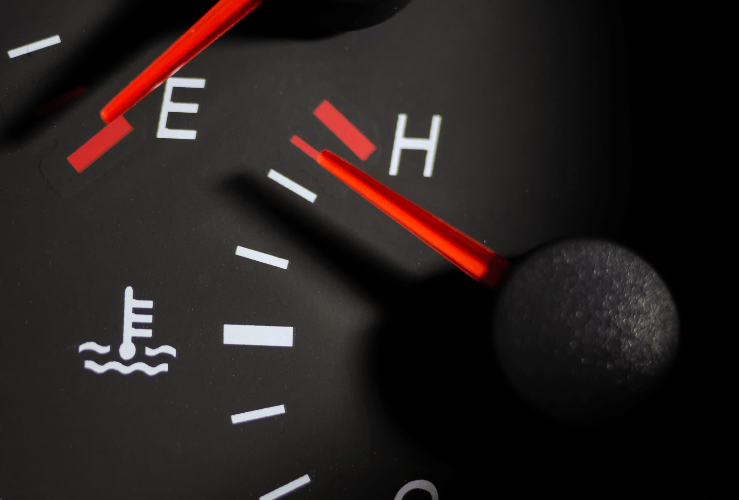
How long can a car overheat before damage occurs?
Engines are designed and built to withstand the high temperatures created by the combustion process, but they have a limit. Once the temperature rises above this threshold, engine components can start to warp.
Damage can occur soon after overheating begins.
Can cars overheat in hot weather?
Most engines are designed to handle temperatures of up to 90 C, but should be able to withstand higher temperatures that can be caused by driving in hot weather.
That said, if the temperature rises too high, a vehicle can overheat.
What happens if your car overheats and you keep driving?
What happens when a car overheats, and the engine continues to run?
Your vehicle's coolant or antifreeze is designed to absorb excessive heat, but low coolant levels or a coolant system leak/fault could mean your vehicle overheats.
The following can result:
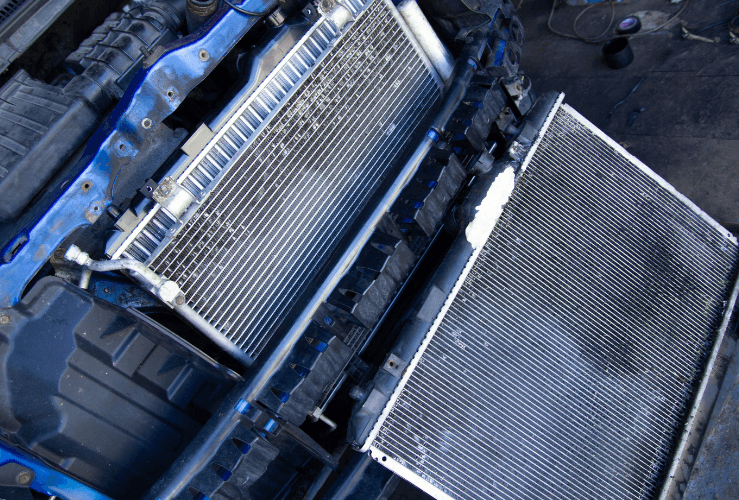
Radiator damage
If your car still has coolant when overheating begins, it will boil and expand, putting immense pressure on the radiator hoses. If the hoses crack, the coolant will spill out, meaning your engine will continue overheating.
Melted/warped engine components
Once the temperature exceeds the maximum your engine can handle, engine components will melt or warp.
The aluminium used in the manufacture of cylinder heads, for instance, will not withstand high temperatures for long.
Damaged cylinder heads: Warning signs
- Oil leak
- Misfiring
- Reduced engine power
- More oil burning than normal
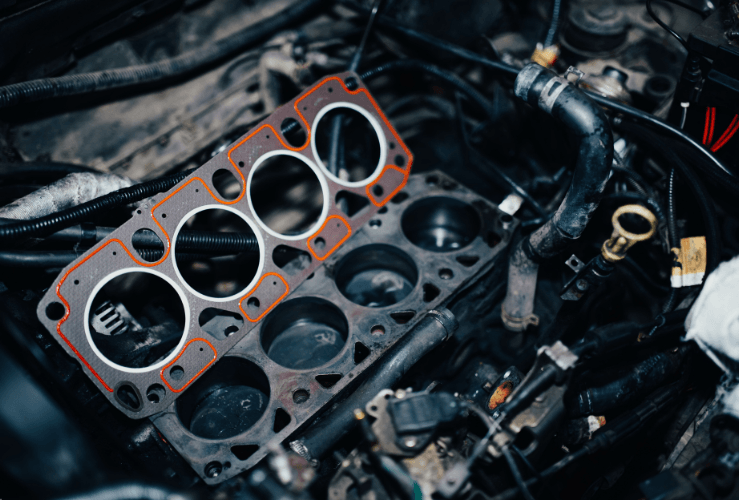
Blown head gasket
Damaged cylinder heads, in turn, could result in a blown gasket - which could lead to an eye-watering repair bill.
The head gasket is there to seal the cylinder's combustion pressure - and when it’s damaged engine oil and coolant will seep into the cylinders.
Blown head gasket signs
- White exhaust smoke
- Milky tint in your oil
- Bubbling in radiator and coolant reservoir
- Antifreeze loss when there's no apparent leak
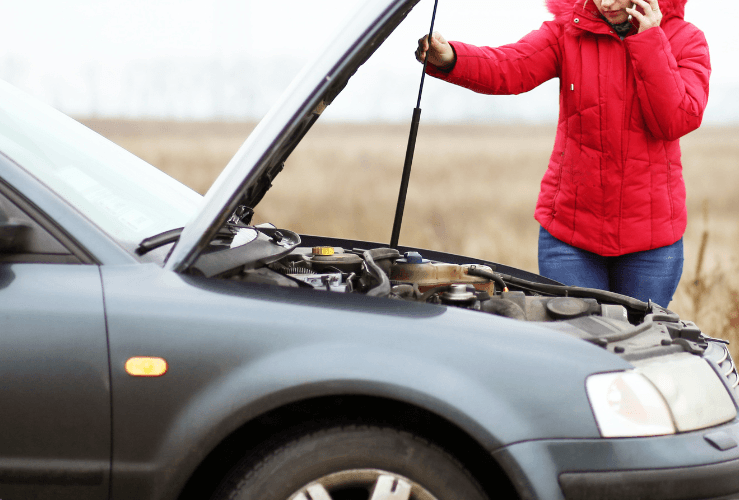
Signs of an issue: What happens when a car overheats?
The following signs suggest your car is overheating:
Engine knocking
This happens when fuel combusts prior to reaching its maximum combustion state.
Reduced fuel economy may mean your motor has been heat-damaged.
Ticking noises
Low oil can mean engine parts grind together, creating a ticking sound. This friction can cause overheating.
Scuffed pistons
Pistons can expand in high temperatures, causing them to scuff parts of the engine.
Look for scuff marks on the piston ring lands and wrist pins.
Scuffing causes the piston edges to wear down, resulting in failure. Fuel may also escape from the pistons, adding to the damage.
Blown head gasket
One of the costliest repairs your car can undertake.
Cracked engine block
Worse than a blown head gasket is a cracked engine block. While rare, if it happens, you'll need a new engine (or more likely, a new car).
Unfortunately, the symptoms of a cracked engine block are very similar to a blown head gasket.
What is causing my car to overheat?
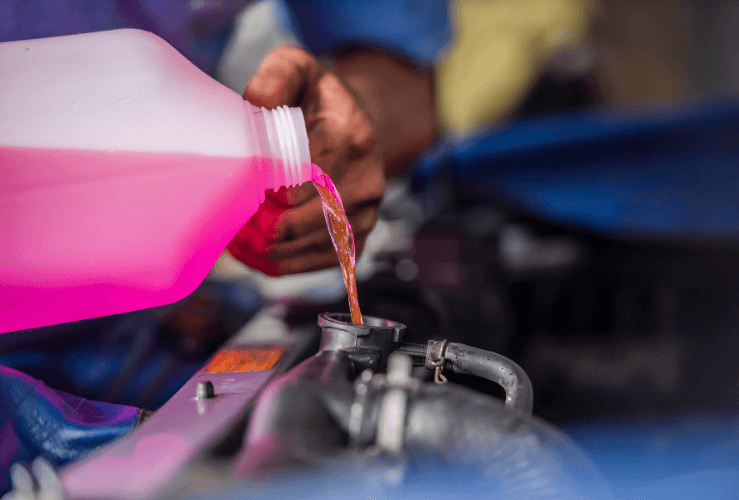
Engine coolant low
Without sufficient coolant, your engine will not be able to absorb the heat - and the coolant will boil over.
Engine locking or seizing can result.
Faulty water pump
Your car's water pump feeds coolant into your engine. Without it, overheating will occur.
Leaks in the cooling system
Damaged, loose, worn, or cracked hoses may lead to a coolant leak.
Without coolant, your engine will overheat.
Look for patches of green, orange, or blue liquid under your car. Get the issue checked out with your local garage as soon as you can.
Radiator damage
Your vehicle's radiator reduces the coolant temperature. If it’s faulty, your engine will overheat.
At what temperature does a car overheat?
As mentioned, your car should be able to handle temperatures of around 90°C or more. If it has to deal with temperatures in excess of this for a sustained period, overheating is likely.
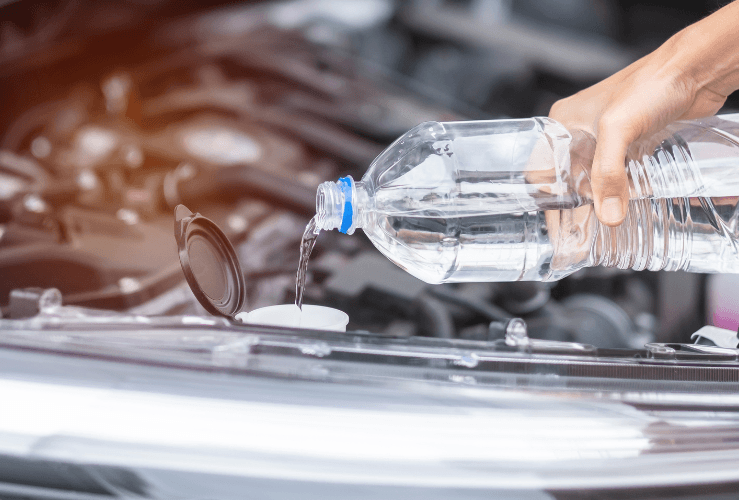
Car overheating: what should I do?
- Pull over somewhere safe.
- Wait 30 minutes for the engine to cool down.
- Unable to pull over? While it seems counter-intuitive, turn on the heating system: this will draw some of the engine heat into the cabin. You'll need to wind down your windows at this point.
- Carry out a visual inspection, looking for a coolant leak, or damaged radiator or fan.
- Add coolant so you can reach a garage.
- If you can't reach a garage, call your recovery provider who will tow your vehicle to a garage.
- The garage will determine how to fix the issue.




